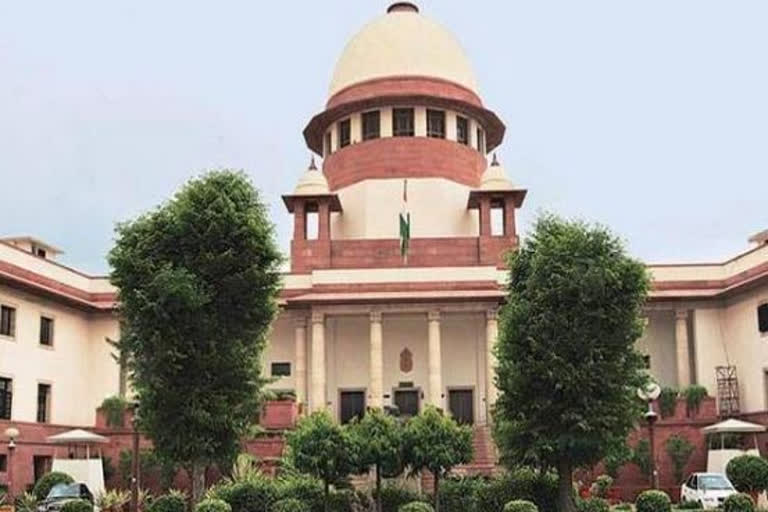नई दिल्ली: उच्चतम न्यायालय ने गुरुवार को संकेत दिए कि वह अनुसूचित जाति (एससी)/अनुसूचित जनजाति (एसटी) (अत्याचार रोकथाम) अधिनियम के कठोर प्रावधानों को नरम नहीं करेगा. शीर्ष न्यायालय ने संशोधित अधिनियम की वैधता को चुनौती देने वाली याचिकाओं पर अपना आदेश सुरक्षित रख लिया है.
न्यायमूर्ति अरुण मिश्रा की अध्यक्षता वाली पीठ ने एससी/एसटी (अत्याचार रोकथाम) अधिनियम, 2018 को चुनौती देने वाली याचिकाओं पर अपना आदेश सुरक्षित कर लिया. यह अधिनियम उच्चतम न्यायालय के 20 मार्च 2018 के आदेश को अमान्य घोषित करता है.
देश में मौजूदा जाति प्रथा की निंदा करते हुए उच्चतम न्यायालय ने मंगलवार को 20 मार्च 2018 को दिए अपने आदेश को याद किया, जो एससी/एसटी अधिनियम के अंतर्गत गिरफ्तारी के प्रावधानों में राहत प्रदान करने में राहत देता है.
पढ़ें-SC-ST कानून पर सुप्रीम कोर्ट : 'प्रावधानों का दुरुपयोग मानवीय विफलता का नतीजा'
शीर्ष न्यायालय ने गुरुवार को सुनवाई के दौरान कहा कि अधिनियम के अंतर्गत आरोपी की अग्रिम जमानत याचिका पर रोक लगाने के लिए केंद्र द्वारा एससी/एसटी अधिनियम में किया गया संशोधन गैर जरूरी था. न्यायालय ने कहा कि उसके हालिया आदेश से अधिनियम के पुराने प्रावधान बहाल हो जाएंगे.
उच्चतम न्यायालय ने यह संकेत भी दिया कि अगर पहली नजर में प्रतीत होता है कि शिकायत गलत है तो एससी/एसटी अधिनियम के अंतर्गत कार्रवाई से पहले पुलिस प्रारंभिक जांच कर सकती है. शीर्ष न्यायालय ने यह भी कहा कि वह चाहेगी कि कानून के कड़े प्रावधानों को बरकरार रखा जाए.



